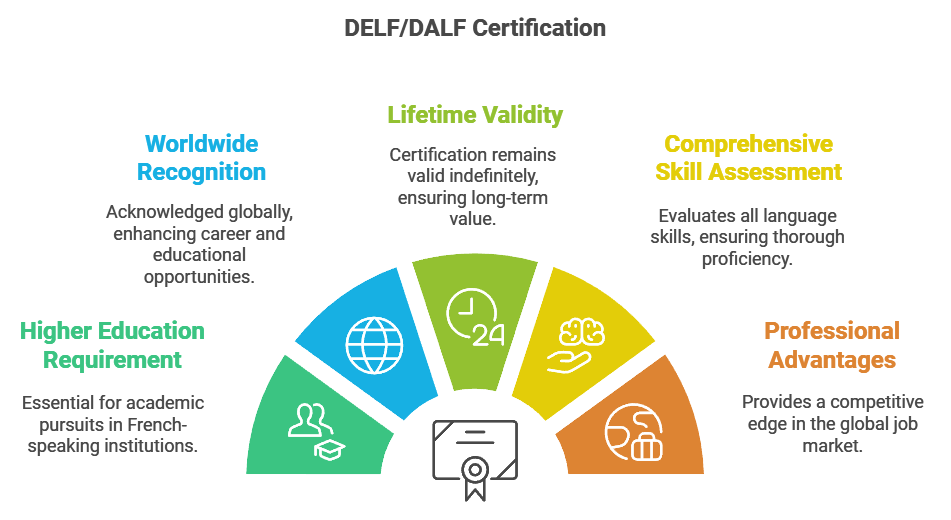Is It Easy to Learn French After German?
Learning French after German is relatively straightforward for most learners, thanks to shared European influences and overlapping linguistic features. While these languages belong to different families, knowing German can give you a significant head start in mastering French.
Key Takeaways
- Prior German knowledge reduces French learning time by 20-30%
- Shared grammatical concepts like gender make transition smoother
- Cognitive benefits of sequential language learning enhance memory
- Modern digital tools make learning more efficient than ever
- Professional opportunities increase significantly with both languages
Language Family Foundations
German and French, while distinct in their origins, share many common elements that make transitioning between them easier than you might think. German’s structured approach to grammar provides a solid foundation for understanding French’s more fluid patterns.
Language Comparison Table:
| Feature | German | French |
|---|---|---|
| Grammar Complexity | High initial, predictable rules | Medium initial, more exceptions |
| Pronunciation | Straightforward, consistent | More challenging, nasal sounds |
| Sentence Structure | Verb second position | Subject-verb-object |
| Gender System | Three genders | Two genders |
| Case System | Four cases | No cases |
Cognitive Benefits
Did you know that learning French after German actually enhances your brain’s ability to process language? Here’s what happens in your brain:
- Enhanced executive function
- Improved pattern recognition
- Better memory retention
- Increased mental flexibility
- Faster problem-solving skills
Modern Learning Context
Today’s digital age offers unique advantages for language learners. Let’s look at how technology transforms the learning experience:
Digital Learning Tools:
- AI-powered pronunciation feedback
- Virtual reality immersion environments
- Language exchange apps
- Adaptive learning platforms
- Gamified practice sessions
Professional Impact
The combination of German and French proficiency opens doors to unique career opportunities. Current market analysis shows:
Industry Demand Table:
| Sector | Required Level | Average Salary Increase |
|---|---|---|
| Tech | B2-C1 | 15-20% |
| Finance | B2 | 12-18% |
| Diplomacy | C1-C2 | 25-30% |
| Tourism | B1-B2 | 10-15% |
| Academia | C1 | 20-25% |
Practical Learning Timeline
How long will it take? Here’s a realistic progression for German speakers learning French:
Beginner (A1-A2): 3-4 months
- Basic conversation skills
- Essential vocabulary
- Simple grammar structures
Intermediate (B1-B2): 6-8 months
- Complex conversations
- Professional communication
- Cultural understanding
Advanced (C1-C2): 12-18 months
- Native-like fluency
- Academic proficiency
- Cultural mastery
Success Strategies
To make the most of your French learning journey:
- Leverage your German knowledge
- Use cognates recognition
- Compare grammar patterns
- Apply learning techniques that worked for German
- Avoid common pitfalls
- Don’t assume all grammar rules transfer
- Practice French pronunciation separately
- Maintain regular exposure to both languages
Modern Context Benefits
The digital economy has created new opportunities for multilingual professionals:
- Remote work positions increased by 40% since 2020
- Virtual team collaboration across European markets
- Digital nomad opportunities in French and German-speaking regions
- Online teaching and consulting possibilities
- International project management roles
Certification Framework
Professional language certifications matter more than ever:
- Required for higher education
- Recognized worldwide
- Valid for life
- Tests all language skills
- Offers professional advantages

Practical Tips for Success
Make your learning journey more effective with these strategies:
- Use parallel learning techniques
- Practice active immersion daily
- Join language exchange communities
- Watch content in both languages
- Maintain regular practice schedules
Remember, learning French after German isn’t just about adding another language to your repertoire – it’s about expanding your cognitive abilities and professional opportunities. With the right approach and modern tools at your disposal, you can achieve fluency more efficiently than ever before.
The journey from German to French represents a natural progression in European language learning, offering both cognitive benefits and practical advantages in today’s interconnected world. By following structured learning paths and utilizing modern resources, you can master French while building upon your German foundation.
